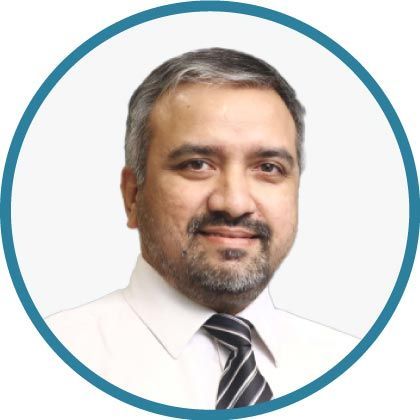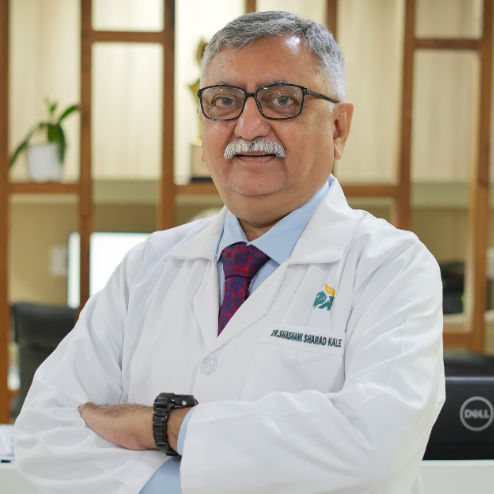Open Spine Surgery Overview and Comparison
Learn all about open spine surgery, including when it’s needed, how it compares to minimally invasive techniques, and what to expect during recovery. Discover tips for healing and how expert care from Apollo24|7 can help.

Written by Dr. J T Hema Pratima
Reviewed by Dr. Rohinipriyanka Pondugula MBBS
Last updated on 13th Jan, 2026

Spine-related issues can be painful and debilitating, affecting your daily life. If conservative treatments like medications, physical therapy, or injections don’t provide relief, your doctor may recommend open spine surgery. This article explains what open spine surgery is, when it’s needed, how it compares to minimally invasive alternatives, and what recovery looks like.
What Is Open Spine Surgery?
Open spine surgery is a traditional surgical procedure where the surgeon makes a large incision to access the spine directly. It is often recommended for complex spinal conditions that require extensive correction, such as:
Severe herniated discs
Spinal deformities (scoliosis, kyphosis)
Spinal fractures
Spinal tumours
Severe nerve compression (spinal stenosis)
Unlike minimally invasive techniques, open surgery provides the surgeon with a clear view of the spine, allowing for precise corrections.
When Is Open Spine Surgery Needed?
Your doctor may suggest open spine surgery if:
Non-surgical treatments (medication, therapy) have failed.
The spinal condition is severe or complex.
Multiple levels of the spine need correction.
There’s a need for spinal fusion (joining vertebrae for stability).
How Does Open Spine Surgery Compare to Minimally Invasive Surgery?
Both open and minimally invasive spine surgeries aim to relieve pain and restore function, but they differ in approach:
| Feature | Open Spine Surgery | Minimally Invasive Surgery (MIS) |
| Incision Size | Large (several inches) | Small (a few tiny cuts) |
| Muscle Damage | More (muscles are cut or moved) | Less (muscles are gently separated) |
| Recovery Time | Longer (weeks to months) | Shorter (days to weeks) |
| Hospital Stay | 3-5 days or more | 1-2 days (sometimes outpatient) |
| Scarring | Larger scar | Minimal scarring |
| Best For | Complex cases (multiple levels, deformities) | Simple cases (single-level disc issues, minor nerve compression) |
Which One Is Right for You?
Your surgeon will decide based on:
The severity of your condition
Your overall health
Previous surgeries (if any)
Expected recovery time
While minimally invasive surgery is preferred for less complex cases, open surgery may be necessary for better long-term results in severe conditions.
Consult Top Specialist
What to Expect Before, During, and After Surgery
Here is a view on what you should expect before, during and after the surgery:
Before Surgery
Medical Evaluation: Blood tests, imaging (MRI, X-rays), and heart/lung checks.
Lifestyle Adjustments: Quit smoking, manage diabetes, and avoid blood thinners.
Pre-Surgery Instructions: Fasting before the procedure.
During Surgery
Anaesthesia: General anaesthesia (you’ll be asleep).
Procedure: The surgeon makes an incision, moves muscles aside, corrects the issue (removes damaged discs, stabilises bones, etc.), and closes the incision.
Duration: Typically 3-6 hours, depending on complexity.
After Surgery (Recovery Tips)
Hospital Stay: 3-5 days for monitoring.
Pain Management: Medications and physical therapy.
Mobility: Gradual movement with support (walker/cane initially).
Activity Restrictions: Avoid heavy lifting, bending, or twisting for 6-12 weeks.
Physical Therapy: Helps regain strength and flexibility.
How to Improve Recovery & Reduce Risks
To ensure a smooth recovery:
Follow your surgeon’s instructions carefully.
Eat a protein-rich diet for healing.
Stay hydrated and avoid smoking/alcohol.
Attend all follow-up appointments.
Start gentle exercises as recommended.
When to Seek Help After Surgery
Contact your doctor if you experience:
Severe pain not relieved by medication
Fever or signs of infection (redness, swelling, discharge)
Numbness/weakness worsening
Difficulty breathing or chest pain
Conclusion
Open spine surgery is a well-established treatment for severe spinal conditions. While recovery takes longer than minimally invasive options, it can provide long-term relief for complex cases. If you’re considering spine surgery, consult a specialist to determine the best approach for your condition.
Need Expert Advice?
If you or a loved one is experiencing chronic back pain and considering surgery, Apollo24|7 offers expert consultations with top spine surgeons. Book an appointment today for a personalised treatment plan.
Consult Top Specialist
Consult Top Specialist

Dr. Gopal Achari
Neurosurgeon
20 Years • MBBS, MS (GEN SUR), MCH (NEURO SUR)
Kolkata
Apollo Multispeciality Hospitals , Kolkata, Kolkata

Dr. Aditendraditya Singh Bhati
Neurosurgeon
21 Years • MBBS(2004), DNB Neurosurgery(2014); MNAMS; Fellow Skull Base Endoscopy (Italy), Fellow Extended Skull Base ( Weill Cornell, USA), Fellow ZAP-X Radiosurgery. Member of American Association of Neurological Surgeons
Delhi
Apollo Hospitals Indraprastha, Delhi
(100+ Patients)

Dr. V Bramha Prasad
Spine Surgeon
21 Years • Mch (Neuro Surgery) from NIMS, FIPM, FINR, Fellowship in Spine Surgery (France), Fellowship in Interventional Pain Management (Apollo Chennai) Fellowship in Interventional Neuro Radiology (Switzerland) Member of North American Spine Society ECFMG Certified – USA
Secunderabad
Apollo Hospitals Secunderabad, Secunderabad
(100+ Patients)

Dr. Joy Verghese
Neurosurgeon
21 Years • MBBS, MS, MCH (Neuro surg. ), FMVS, FSS, FINR, MCH Neurosurgery (Mumbai University), FINR (Zurich University, Switzerland)
Chennai
Apollo Hospitals Greams Road, Chennai
(150+ Patients)

Dr. Shashank Sharad Kale
Neurosurgeon
32 Years • M.B.B.S. , M.S. (General Surgery), M.Ch. (Neurosurgery) , Reconstructive Spine Fellowship (University of South Florida USA)
Delhi
Apollo Hospitals Indraprastha, Delhi




